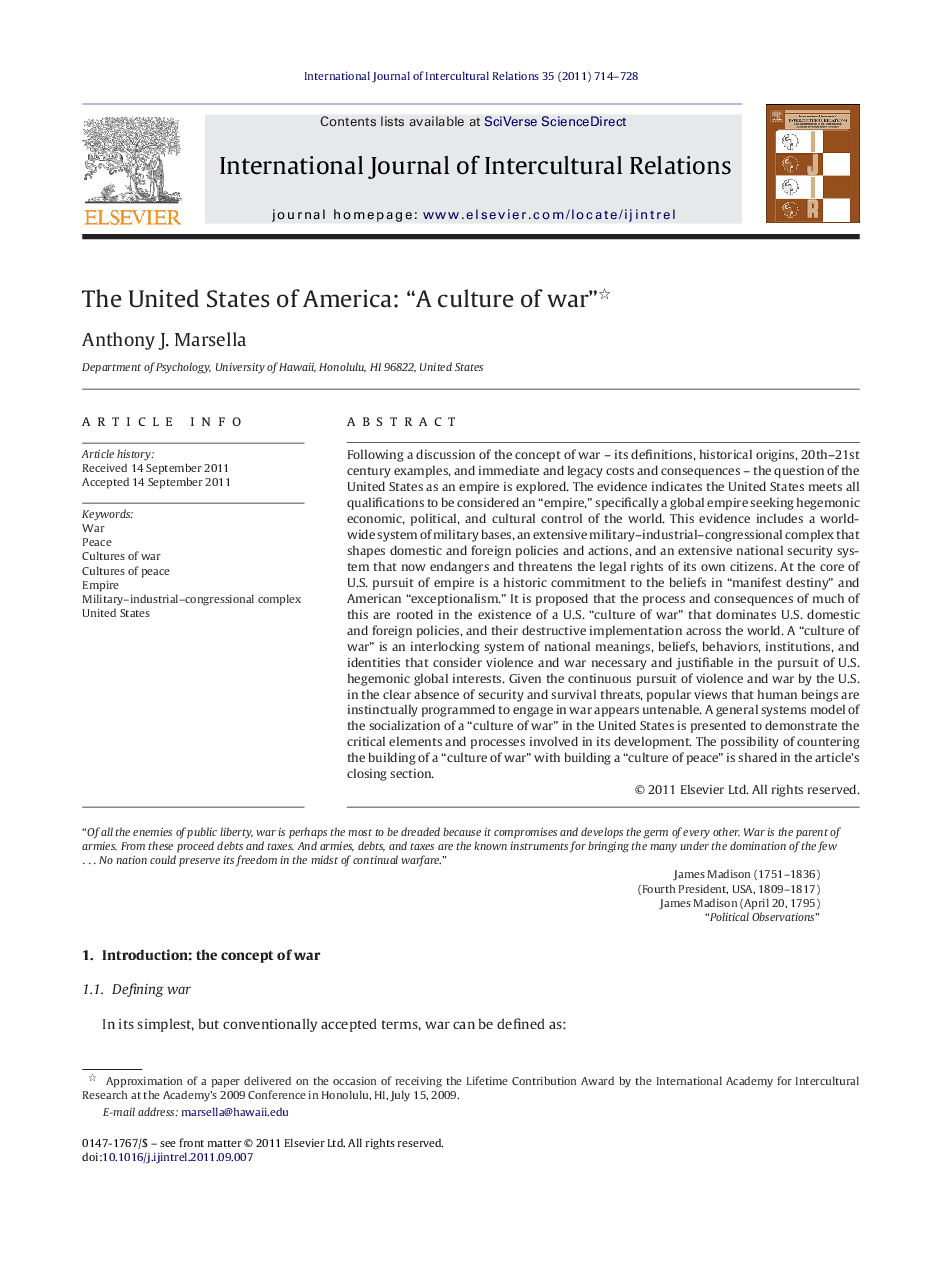| Article ID | Journal | Published Year | Pages | File Type |
|---|---|---|---|---|
| 947244 | International Journal of Intercultural Relations | 2011 | 15 Pages |
Following a discussion of the concept of war – its definitions, historical origins, 20th–21st century examples, and immediate and legacy costs and consequences – the question of the United States as an empire is explored. The evidence indicates the United States meets all qualifications to be considered an “empire,” specifically a global empire seeking hegemonic economic, political, and cultural control of the world. This evidence includes a worldwide system of military bases, an extensive military–industrial–congressional complex that shapes domestic and foreign policies and actions, and an extensive national security system that now endangers and threatens the legal rights of its own citizens. At the core of U.S. pursuit of empire is a historic commitment to the beliefs in “manifest destiny” and American “exceptionalism.” It is proposed that the process and consequences of much of this are rooted in the existence of a U.S. “culture of war” that dominates U.S. domestic and foreign policies, and their destructive implementation across the world. A “culture of war” is an interlocking system of national meanings, beliefs, behaviors, institutions, and identities that consider violence and war necessary and justifiable in the pursuit of U.S. hegemonic global interests. Given the continuous pursuit of violence and war by the U.S. in the clear absence of security and survival threats, popular views that human beings are instinctually programmed to engage in war appears untenable. A general systems model of the socialization of a “culture of war” in the United States is presented to demonstrate the critical elements and processes involved in its development. The possibility of countering the building of a “culture of war” with building a “culture of peace” is shared in the article's closing section.
► The USA is a culture of war rooted within a widespread ethos that uses military force in pursuit of self-interests. ► The USA has been continuously at war since the earliest days of its existence as a nation. ► The political, economic, cultural, and moral costs and consequences of war have reduced the USA's moral authority, political stability, and economic viability. ► The USA must establish itself as a “culture of peace” by pursuing a new set of cultural ethoses.
